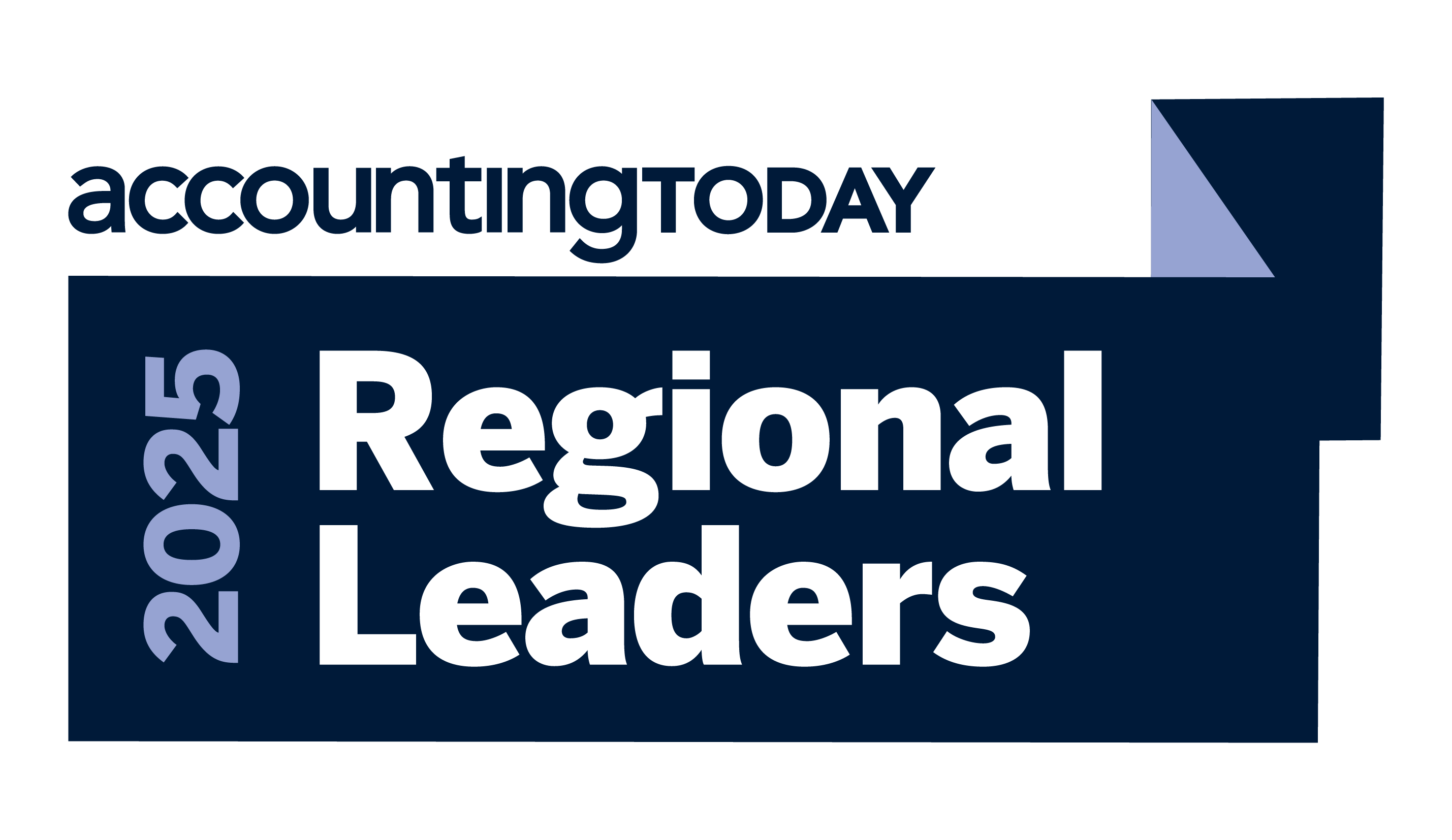Insights
We are proud to be named a West Coast Regional Leader for 2025


Grant Funding Uncertainties: Making Sense of Federal Grant Freezes and Executive Orders Under the New Administration
ARTICLE | February 17, 2025
Authored by Roger Martinez and Girlie Cabije
Executive orders issued in 2025 have continued to create significant shifts in federal funding, particularly affecting eligibility, allowable activities, and reporting responsibilities.
Earlier this year, Vasquez + Company LLP hosted a two-part webinar series to help government and nonprofit organizations understand and respond to these evolving requirements.
Part 1, held on February 26, 2025, provided insights into how recent executive orders are impacting federal grant compliance and what recipients should do to remain aligned with new regulations.
Access Part 1 Webinar Resources
Part 2, held on May 1, 2025, focused on practical strategies for confidently managing federal funds under these shifting conditions.
Access Part 2 Webinar Resources
____________________
As the federal government continues to realign funding priorities, nonprofit organizations, government entities, and other entities receiving federal funds, such as healthcare, higher education, and other entities, must remain diligent in tracking changes to compliance requirements and funding restrictions. Executive orders issued in 2025 have resulted in notable shifts, particularly in funding eligibility, permissible activities, and reporting obligations.
Organizations that rely on federal funding must understand that compliance is their responsibility and must be proactive by:
- Diligently tracking regulatory changes,
- Assessing their funding sources, and
- Consulting legal counsel to navigate potential legal challenges.
Failure to do so could result in federal funding suspensions, penalties, or even legal consequences.
Federal Grant Laws - Overview
The terms of a federal grant award are established at the time when such grant funds are awarded. In general, grant terms may not be modified unless additional federal funds are added to the award. However, there are circumstances where an award may be terminated, such as:
- Grantee noncompliance with grant terms;
- Consent of the grantee; or
- Pursuant to terms and conditions of the grant award, which may include a term stating that unilateral policy-based terminations are permitted.
Recent Federal Executive Orders and Their Impact
Several executive orders issued in 2025, which you can find here, have announced restrictions on how federal funds can be used. These orders reflect the current administration’s priorities and have resulted in funding suspensions for programs and activities deemed to conflict with them. The most affected areas include:
- Certain Health Services and Advocacy Efforts:
- Executive orders have restricted federal funds from being used for abortion services, family planning initiatives, and organizations that provide referrals for these services. This has directly affected healthcare nonprofit organizations, particularly those that previously received federal grants under programs such as Title X.
- Education and Curriculum Content:
- Federal funds can no longer be used for educational initiatives that include discussions on systemic racism, critical race theory, or LGBTQ+ inclusion programs. Organizations involved in public education, curriculum development, and teacher training must carefully evaluate whether their programs align with new federal funding criteria.
- Advocacy and Lobbying Activities:
- Many nonprofit organizations engage in advocacy, public policy efforts, and lobbying to influence government decisions. However, recent executive orders have placed new limits on the use of federal funds for these activities. Specifically, organizations that engage in certain types of advocacy related to reproductive rights, climate change policies, and DEI (Diversity, Equity, and Inclusion) initiatives may no longer be eligible for certain federal grants.
- DEI and Social Justice Initiatives:
- Some federal funding streams that previously supported DEI programs, including workforce development, education, and healthcare initiatives, have been suspended or redirected. This shift impacts nonprofit organizations that have relied on federal grants to support programs aimed at reducing disparities in historically marginalized communities.
- Immigration-Related Legal Services:
- Federal funding for organizations providing legal assistance to undocumented immigrants, asylum seekers, or individuals impacted by immigration policy changes has also been reduced. This has particularly affected nonprofit legal service providers and advocacy groups that assist immigrants with legal representation, visa applications, and asylum claims.
- Climate and Environmental Grants:
- Grants supporting clean energy, sustainability initiatives, and climate change adaptation have been significantly reduced. Organizations engaged in environmental advocacy or renewable energy projects may find themselves ineligible for previously available funding.
Recommended Best Practices to Manage Uncertainties
With these changes, it is critical for all entities receiving federal funds – whether they are nonprofit organizations, local governments, education institutions, or for-profit private enterprises—to stay vigilant and proactive in managing compliance. Organizations should consider implementing the following best practices:
- Stay Informed of Regulatory Changes: Entities receiving federal grants must actively monitor new executive orders, agency guidance, and funding notices to determine how changes may impact their operations. Get professional advice from a CPA and legal counsel to stay up to speed on new developments.
- Engage with Federal Grant Officers: Communicate with funding agencies for clarification on compliance requirements and seek guidance on any uncertainties. Keep communication lines open with grant officers and ensure that you are keeping them abreast of your organization’s plans to account for and wind down suspended grant activities, including related termination costs, and your plans to request reimbursement.
- Review Grant Agreements and Compliance Terms: Many federal funding changes are embedded in new grant agreements, requiring recipients to certify compliance with updated terms. It is the organization’s responsibility to track and manage the funds it receives, staying updated on what is permissible under each program. Each federal program comes with its own set of rules, and they can shift quickly. For instance, executive orders that alter or suspend funding may not affect every program equally. Only by maintaining a thorough understanding of the specific conditions tied to federal grants or contracts can organizations ensure they are in compliance. Organizations must:
- Thoroughly review their grant agreements and ensure that they do not inadvertently violate restrictions;
- Conduct an internal compliance review, and
- Evaluate whether any existing activities conflict with new federal restrictions and adjust funding strategies accordingly.
- Track Activities and Costs Carefully: If federal funding is paused, suspended, or terminated, organizations must clearly track all activities, including the costs associated with those activities, before and after any changes and including termination costs. Some best practices include establishing a cost allocation plan in accordance with the Uniform Guidance, designating separate general ledger accounts to track expenses, and ensuring internal controls surrounding the review and approval of expenses are being carefully followed. Nonprofit organizations that provide services in sectors impacted by these executive orders, such as healthcare or education, may need to continue certain operations despite funding disruptions. Documenting these continued costs, such as staff time, property maintenance, and legal fees, will help ensure that these expenses are recoverable if funding resumes.
- Train Staff on federal funding compliance: Ensure that all employees, especially those responsible for program management and financial oversight, understand the restrictions and requirements tied to federal funding.
- Consult Legal Counsel: Many of the recent changes in federal funding, especially those tied to specific political issues or social services, can present complex legal scenarios. Organizations must consult with legal counsel to navigate these complexities, especially if it’s unclear whether specific activities fall within the boundaries of permissible federal funding use. Consulting legal professionals early can help avoid potential penalties or disallowed costs down the line.
- Plans for Funding Disruptions: Organizations that rely heavily on federal funding should prepare for potential disruptions by diversifying their revenue sources, securing alternative grants or funding opportunities, obtaining new lines of credit, and creating financial contingency plans to sustain operations if funding is reduced or eliminated. Increase efforts to secure private grants, philanthropic funding, or earned revenue to reduce reliance on federal dollars. This is the time to start a fundraising campaign, as the general public is discussing this at their kitchen tables and are looking for avenues to contribute.
- Monitor Cash Flow and Financial Health: Regularly review reserves and maintain a line of credit for unforeseen expenses. Monitoring the organization’s cash flow will help you make informed decisions about staffing, program continuation, and other key operations.
- Implement Robust Documentation Practices: In case of funding pauses, terminations, or restrictions, keep thorough records of all activities, costs, and communication with federal agencies. Proper documentation will be essential for securing reimbursement or justifying costs that continue to accrue during periods of disruption.
- Communicate with Major Supporters: Maintain clear communications with major supporters and those charged with governance.
- Stay in Touch with Your Auditors: Early discussions with your auditors can help prepare your organization for potential audit implications or compliance questions that may arise from federal funding changes. Taking the initiative to address these challenges early will ensure a smoother audit process. If impacted federal funding is a significant source of revenue for your organization, consider what effect this will have on your organization’s financial position, contact your auditors to discuss, and keep governance well-informed throughout the process.
Final Thoughts
The current federal funding landscape is evolving, and organizations that receive federal dollars must take a proactive approach to compliance. Failure to align with new regulations could result in funding loss, audit findings, or legal repercussions. By staying informed about current federal regulations, regulatory changes and recent developments, tracking activities, coordinating with the related legal frameworks, and seeking legal, financial and accounting guidance, when necessary, organizations can safeguard their funding and continue delivering critical services to their communities.
For those navigating complex compliance questions and financial contingency matters, consulting legal, financial and accounting professionals early in the process is highly recommended.
DISCLAIMER: This article is for informational purposes only and does not constitute legal, financial, or accounting advice. Organizations should consult qualified legal, financial, and accounting professionals regarding their specific circumstances.
Let’s Talk!
You can call us at +1 213.873.1700, email us at solutions@vasquezcpa.com or fill out the form below and we’ll contact you to discuss your specific situation.
Required fields are marked with an asterisk (*)

Vasquez + Company LLP has over 55 years of experience performing audit, tax, accounting, and consulting services for nonprofit organizations, governmental entities, and private companies. We are ranked among the top 1% of accounting firms by the AICPA and deliver tailored solutions that meet the unique needs of each client.
For more information on how Vasquez can assist you, please email solutions@vasquezcpa.com or call +1.213.873.1700.
Subscribe to receive important updates from our Insights and Resources.